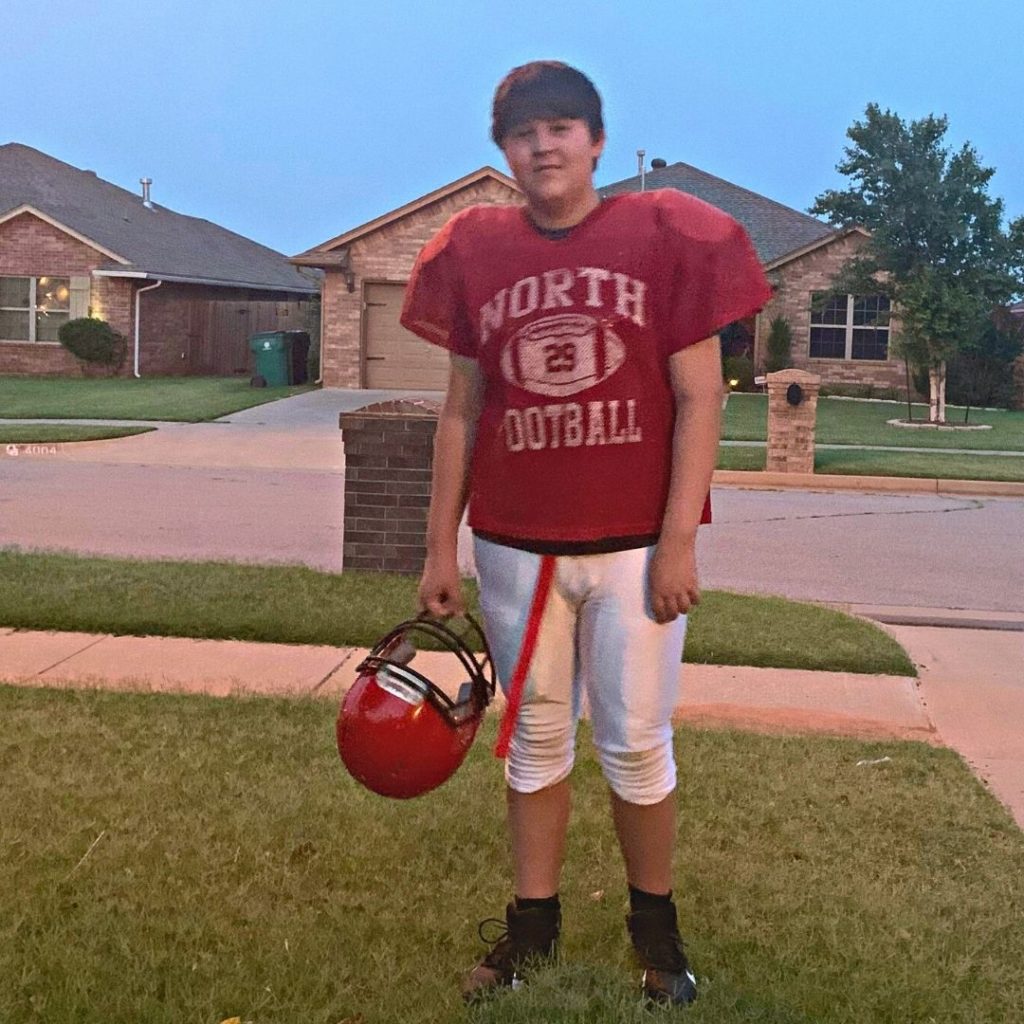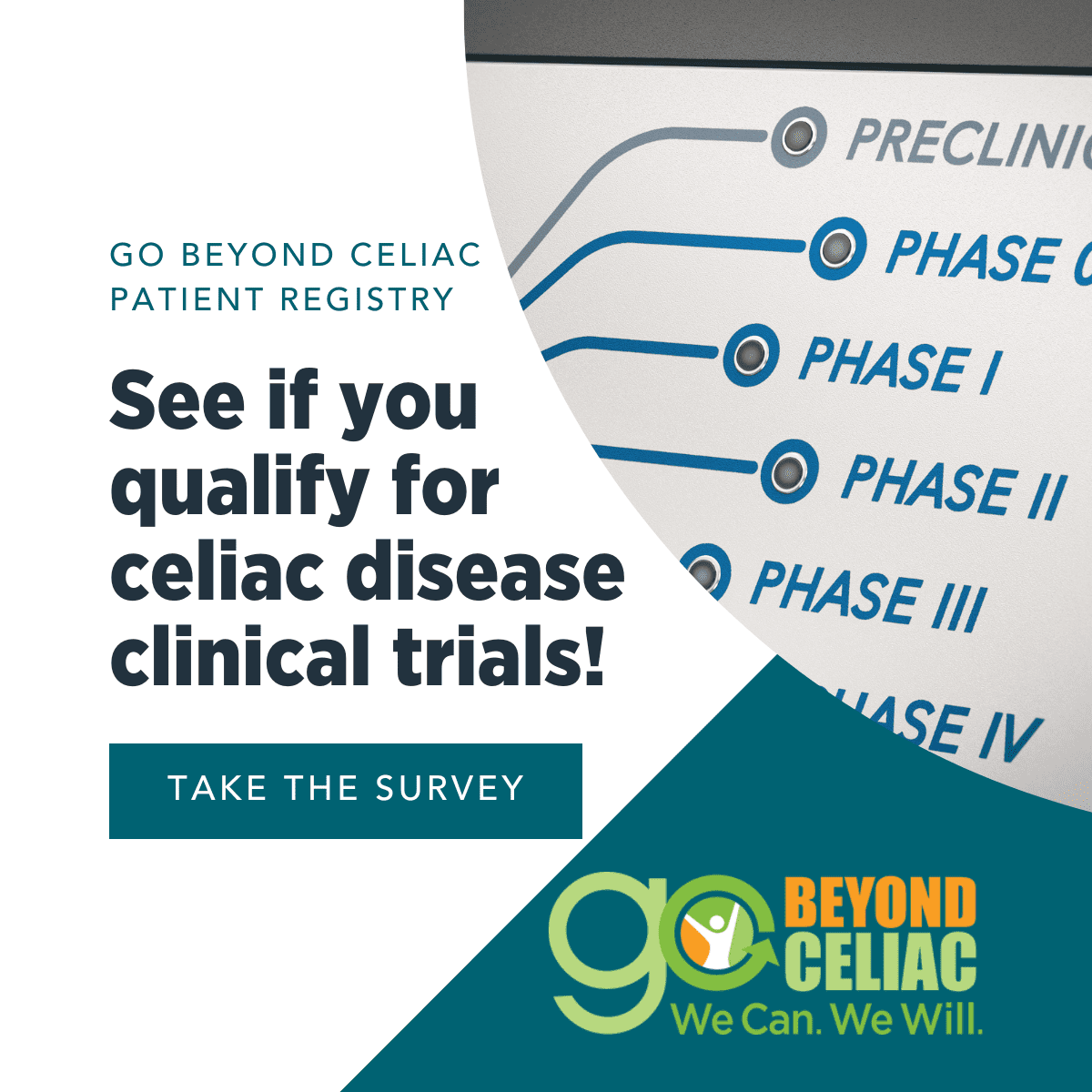As Hayden is still a minor, his story is told by his mother, Monica.
Describe your child’s life prior to diagnosis:
Hayden started off as a normal toddler, very hyper and into everything.
How did you come to know (or suspect) that your child had celiac disease?
There were times he would vomit out of nowhere. He would also become very constipated, and he was exhibiting some sensory issues and mood swings. When he started elementary school, a teacher asked to get him checked for ADHD. He was then diagnosed with ADHD and an autism spectrum disorder, but he was getting worse with behaviors and mood swings. It was very stressful and overwhelming for all of us.
Around age seven he started going downhill after he got sick with a virus. I remember we went to a birthday party that summer and after we were there for only 15 minutes he was ready to leave. This kid loved swimming, so when he insisted on leaving I knew something was wrong. I took him back home and while he laid in bed I made a doctor’s appointment.
Weeks went by and initially I thought he was just tired from school, but he kept getting worse. He would sleep and lay in bed, and he had excruciating stomach pains. At one point we went to the ER and the doctor thought his appendix was the cause. They ruled that out, but his liver enzymes came back high so they got us in with a gastroenterologist (GI) immediately.
At the first visit the GI did some blood work on him to check for genetic things and to recheck his liver enzymes. He was on a lot of medications, including one just to keep food down. They also decided to schedule him for an upper endoscopy (EGD) with a biopsy.
We got the blood work back and it showed increased liver enzymes and that he carried a gene associated with celiac disease. This was the first time I ever heard of celiac disease, but other blood work for it was negative so I didn’t think anything of it.
We went in for the EGD but the test came back inconclusive. During this time the doctor we had was very rude and had a horrible bedside manner, so we switched to the local children’s hospital.
Once we got in at the children’s hospital our doctor immediately requested a review at Mayo Clinic. Hayden’s biopsy was then sent to the Mayo Clinic, and the Mayo requested that the biopsy be repeated, as sometimes celiac disease will not show in bloodwork and the biopsy is the gold standard, but the doctor hadn’t looked at the duodenum (the first part of the small intestine).
I was really impressed with how quickly the children’s hospital got on this. Just a few weeks after we switched over the doctor got him set up for biopsy.
Unfortunately at this point Hayden was also bleeding from the rectum and had pale, floating stools, so they scheduled him for a colonoscopy as well.
About a week after the second biopsy we got the results: stage 3b celiac disease. I was told to start him on a gluten-free diet immediately.
I had absolutely no clue what to do or where to start. What made it worse was not having a support system in place, because even my own family thought it was some “gluten-free fad“ diet. No one understood, but in all fairness I was still learning too.
School was the worst. Hayden would come home crying because he was made fun of for being fat. He would cry because kids had cupcakes he couldn’t eat. This really bothered him. He said he would sit in the corner and watch the kids with treats, wishing he could eat them but not wanting to feel sick again.
I never thought about the kids with allergies before my son’s diagnosis. I didn’t know how much not being included with food affects these kids, but I know now and see this from a different perspective.
We eventually got an Individualized Education Program (IEP)/health plan, and once the school developed a gluten-free menu Hayden was able to eat at school again. He said it made him feel like a normal kid. We have had an amazing child nutrition team that really treats him well and provides safe food for him. I’m not sure if my son was the first kid ever in the district to have celiac disease, but our case started the gluten-free menu and it benefits many others now, too.
About a year after Hayden’s diagnosis I noticed that his mood swings had stopped and that his ADHD symptoms were much better. It was like he was a new kid. I never would have believed something in a diet could cause such a difference if I hadn’t witnessed it myself.
Things are going great, aside from a thrombocytosis diagnosis (a disorder where your body makes too many blood platelets), which the doctor believes was secondary to celiac disease.
Interestingly, our family has done genetic testing with 23andMe and it shows that I carry the celiac disease gene. I had no clue until the testing. We traced it back to my grandmother’s side, who passed a few years ago and always had stomach issues, which led to other health issues.
Do you believe anything could have sped up your child’s diagnosis? If so, please explain:
If the doctor had more knowledge on the correct biopsy technique.
Describe your child’s experience living with celiac disease:
Today Hayden is 14 years old. He’s lost weight and he’s not vomiting all the time. I know a gluten-free diet is challenging for kids who want to explore eating gluten in their teen years, but Hayden doesn’t want any part of it. When he does get exposed to gluten he has symptoms like mood changes, stomach pains, diarrhea and headaches. Basically it makes him feel like he has the flu, he says. He knows how it makes him feel and he chooses to stay away from gluten.
However, it’s tough when trying to make friends and going to restaurants. The social impact when food is involved is the worst.
Is there anything else you’d like to add to your child’s story?
We are hoping for a cure. Hayden said he wants a cure more than anything else he could have.



